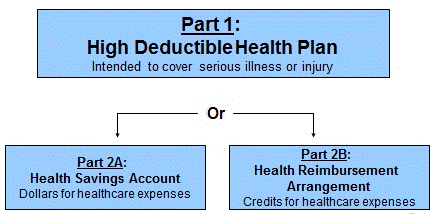Table of ContentsRumored Buzz on Health Care Policy - Jama NetworkAll about Health Care Policy - Jama NetworkThe 9-Minute Rule for Health Care For All: A Framework For Moving To A Primary Care ...
Medicaid serves individuals who are U.S. citizens or legal irreversible citizens, consisting of low-income adults, their kids, and people with certain specials needs. Poverty alone does not always certify someone for Medicaid. Medicaid is the biggest source of funding for medical and health-related services for individuals with limited earnings in the United States.
federal government since 1965. It guarantees access to medical insurance for Americans ages 65 and older in addition to more youthful individuals with disabilities and individuals with advanced kidney disease. Medicare has a different social role from for-profit personal insurers, which handle their danger portfolio to optimize success by denying protection to those they expect will need it.
In 2008, the U.S. Federal Government spent $391,266,000,000 on Medicare. Beginning in the 1990's, many states received waivers from the federal government to produce Medicaid handled care programs. Under handled care, Medicaid recipients are registered in a private health insurance, which receives a fixed monthly premium from the state. The health insurance is then accountable for offering all or the majority of the recipient's health care requirements.
Nationwide, approximately 60% of enrollees are enrolled in handled care plans. Core eligibility groups of poor kids and moms and dads are probably to be enrolled in handled care, while the senior and disabled eligibility groups more frequently remain in standard "charge for service" Medicaid. Some states Addiction Treatment Center operate a program known as the Medical insurance Premium Payment Program (HIPP).
As of 2008, just a couple of states had exceptional assistance programs and enrollment was reasonably low. who is eligible for care within the veterans health administration?. However, interest in this technique remained high. Medicare Benefit plans are required to offer protection that meets or surpasses the standards set by the original Medicare program, but they do not need to cover every benefit in the very same method.
Medicare Benefit prepares use a part of the payments they receive from the federal government for each enrollee to offer supplemental benefits. https://www.wrde.com/story/42179963/boca-raton-drug-treatment-center-offers-tips-on-choosing-the-right-rehab-center All strategies restrict their members' annual out-of-pocket spending on healthcare, with a yearly limitation of $6,700. Some strategies offer dental protection, vision protection, and other services not covered by Medicare Components A or B.
Top Guidelines Of How Healthcare Policy Is Formed - Duquesne University
Unlike Medicare, which is entirely a federal program, Medicaid is a joint federal-state program - senate health care vote when. Each state operates its own Medicaid system, however this system must comply with federal guidelines in order for the state to receive matching funds and grants - what is the legislative stage of health care policy. The coordinating rate supplied to states is identified using a federal matching formula (called Federal Medical Assistance Percentages), which generates payment rates that vary from one state to another, depending on each state's respective per capita income.
Medicaid funding has actually become a significant financial concern for lots of states over the last few years. On average, states invest 16.8% of their general funds on the program. If the federal match expense is also counted, the program normally uses up 22% of each state's budget.: Costs on U.S.
Medicare is a made entitlement. Privilege is most typically based on a record of contributions to the Medicare fund. As a result, it is a kind of social insurance coverage that makes it feasible for individuals to pay for insurance for sickness in aging. They contribute to the fund when they are young and able to work.
Some individuals will pay in more than they receive back and others will get back more than they paid in, however this is the practice with any form of insurance coverage, public or private. Universal healthcare coverage supplies healthcare and financial security to all people; however the United States has not adopted it.
Advocates of healthcare reforms that require the expansion of government involvement in order to accomplish universal healthcare argue that the requirement to offer revenues to financiers in a primarily free-market health system, and the extra administrative costs, tends to drive up expenses. The United States has instead adopted a single-payer system for health care.
: more info The quantity of area or time given to an occasion in papers or on television Universal healthcaresometimes described as universal health coverage, universal protection, universal care, or social health protectionusually describes a health care system that supplies health care and monetary protection to all citizens. It is organized to supply a defined bundle of benefits to all members of a society with the end objective of providing monetary risk protection, enhanced access to health services, and enhanced health outcomes.
Indicators on Who - Health Policy You Should Know

3 critical measurements can figure out universal health care: who is covered, what services are covered, and just how much of the expense is covered. Universal health care systems vary according to the level of federal government participation in providing care and/or medical insurance. In some countries, such as the United Kingdom, Spain, Italy, and the Nordic countries, the government has a high degree of involvement in the commissioning and shipment of healthcare services.
Other countries have a much more pluralistic shipment system of required medical insurance, with contributory rates based on salaries or income and usually funded jointly by employers and beneficiaries. Often the health care funds are stemmed from a combination of insurance coverage premiums, salary-based necessary contributions by employees and/or employers to controlled sickness funds, and by federal government taxes.
dollars PPP-adjusted, for the nations of Australia, Canada, France, Germany, Japan, Switzerland, the UK, and the United States with the years 1995, 2000, 2005, and 2007 compared. Proponents of healthcare reforms that require the expansion of government participation in order to accomplish universal health care argue that the need to provide profits to investors in a mainly free-market health system, and the extra administrative costs, tends to drive up costs and lead to more pricey health care.
Scattered, localized, "insurance coverage cooperatives" are too little to do that and are "developed to fail" by the affluent forces opposing Democratic health care reform. The United States has rather adopted a single-payer system for healthcare. The term "single-payer healthcare" is used in the United States to describe a financing mechanism satisfying the expenses of treatment from a single fund.
